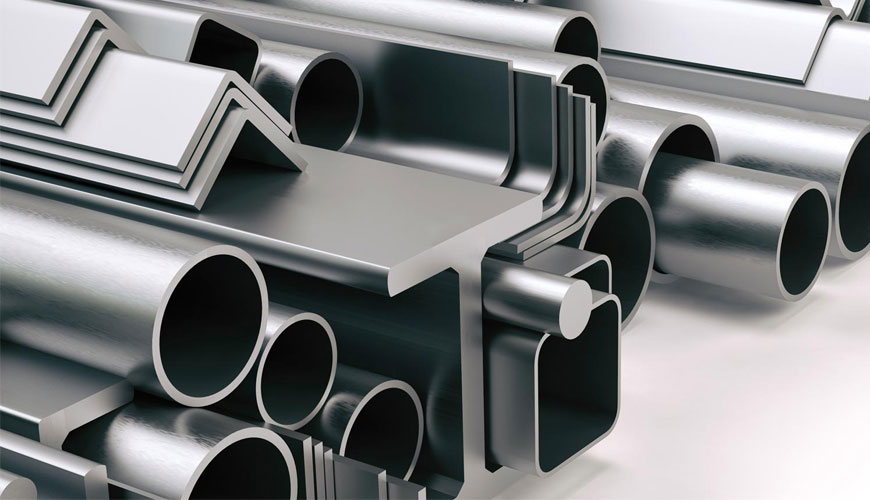

EUROLAB laboratory provides testing and compliance services within the scope of EN ISO 10164 standard. The EN ISO 10164 standard specifies the deformation characteristics perpendicular to the surface of the product. This standard is applicable in addition to all product standards for flat products and sections of fully killed steels, with the exception of stainless steels.

Covers steels with a nominal thickness (t) between 15 mm and 400 mm, for which improved thickness properties are required with a specified minimum upper yield strength ReH or proof strength Rp0,2 ≤ 960 MPa1). This standard may also be applied to other steel grades if agreed upon at the time of order.
This standard can be applied to products with a thickness of 10 mm ≤ t < 15 mm, if agreed at the time of order. This document is applicable to products with a thickness of t > 400 mm, if agreed upon at the time of order.
Flat products and normally produced steel sections have deformation characteristics perpendicular to the surface (through thickness) that differ from those obtained in the surface direction. This anisotropy of properties can lead to difficulties in welded structures such as lamella tearing.
However, it is possible to improve overall thickness properties using additional steelmaking procedures. In this document, through-thickness properties are characterized by the values specified for area reduction in the through-tensile test.
The minimum area reduction values contained in this document alone cannot be considered as a safeguard against the occurrence of lamella tearing. In fact, the risk of lamella tearing is also mainly influenced by, for example, the type of construction, the weld design and the welding procedure.
However, reducing the area is a good general guideline for lamellar tear resistance, ie the risk of lamellar tear decreases with increasing area reduction in a tensile through-thickness test.
EUROLAB, with its more than 25 years of experience, state-of-the-art accredited laboratories and expert team, helps you get precise and fast results. Do not hesitate to contact our laboratory for your testing and certification requests.
To get an appointment, to get more detailed information or to request an evaluation, you can ask us to fill in our form and reach you.